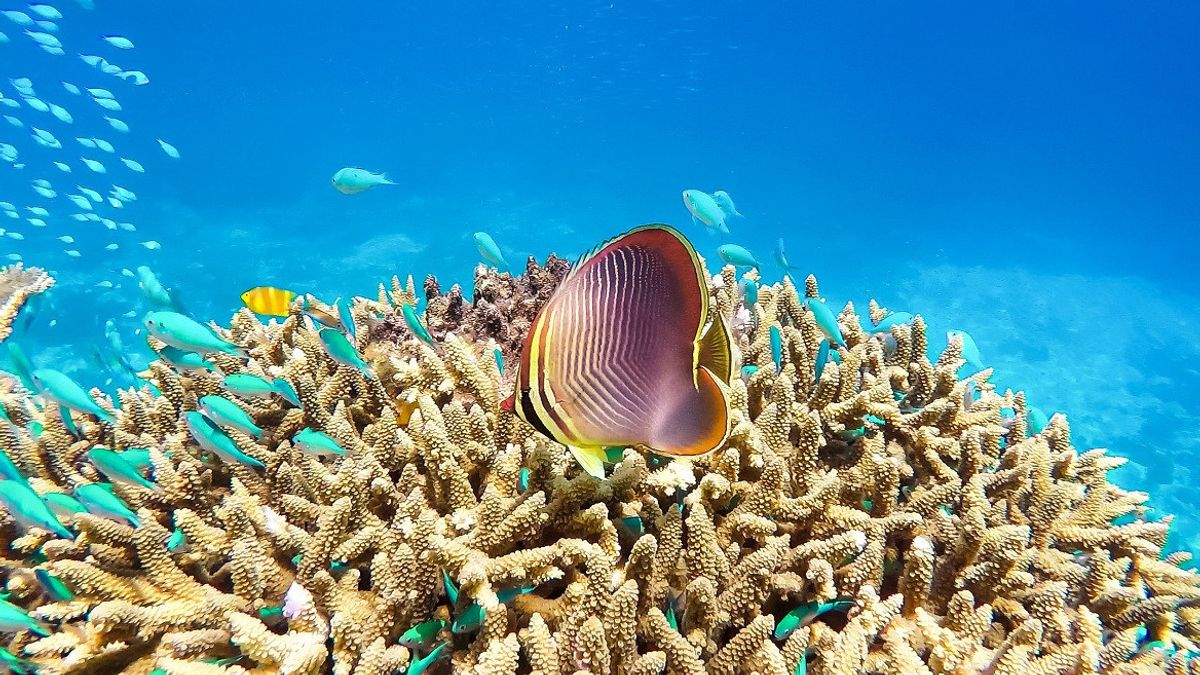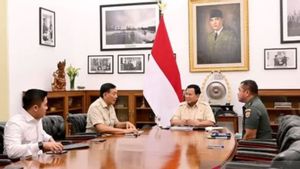JAKARTA - China has defended the United Nations Scientific and Cultural Education Organization (UNESCO), regarding a proposal to add the Great Barrier Reef area to the 'in danger' list.
Not coincidentally, China, which had previously been in friction with Australia, will this year host a virtual and physical UNESCO meeting to be held in Fuzhou City over the next two weeks, with UNESCO planning to make a decision on Friday, July 23.
"Australia, as a member country of the World Heritage Committee (UNESCO), must attach importance to the opinions of advisory bodies and earnestly fulfill the task of protecting World Heritage, rather than making baseless accusations against other countries," said Tian Xuejun, deputy education minister. China and the president of this year's session, on Sunday last, citing CNA Monday 19 July.
The UNESCO committee will consider adding new sites to the World Heritage list, removing some and adding others to the endangered category.
For example, the draft decision to put Venice on the list of endangered, prompted the Italian government to ban cruise ships from the lagoon city in a bid to avoid the designation.
Tian, speaking at the first news conference since the meeting opened last Friday, said the Great Barrier Reef proposal was based on data from Australia and recommendations from advisory bodies, rather than on Beijing's meddling as the Kangaroo Country alleges.

Separately, Australia's Environment Minister Susan Ley, who is in Europe to lobby the UNESCO delegation against endorsing the endangered list, was not immediately available for comment on China's criticism.
His office on Monday released a report by the government-funded Australian Institute of Marine Sciences, indicating extensive recovery of coral reefs. Monitoring by the agency found coral cover had increased during a lull from bad weather over the past year.
"The release of the full report underscores our view that the World Heritage Committee's proposed list is not based on recent information," Ley said in a statement.
Australia is known to react decisively when the draft bill was launched last month. "This decision is wrong. There is clearly politics behind it," Ley said, without naming China.
To note, relations between the two countries have deteriorated in recent years, with Australia blocking technology and Chinese investment in key infrastructure. Meanwhile China is using tariffs and other measures to reduce its imports from Australia.
Long before that, Australia had been warned in 2014 that the Great Barrier Reef was being considered for its 'in danger' list, having been declared a world heritage in 1981.
To note, the draft decree says Australia's long-term plan for coral reefs, a network of 2,500 coral reefs covering 348,000 sq km, requires stronger and clearer commitments, in particular to fight the impacts of climate change urgently.
"We strongly acknowledge the work that has been done in Australia, but our text in the draft decision, is a proposal to put a site on the world heritage list in jeopardy, because of the threats identified," said Mechtild Roessler, director of the UNESCO World Heritage Committee.
Separately, Ernesto Ottone Ramirez, assistant director general for culture at UNESCO said the list in danger should be seen as a collective call for action from all member states.
"That's something that should be seen as something positive and not, as we've heard from some authorities in other countries, as a punishment. That's how we preserve our legacy for future generations."
The English, Chinese, Japanese, Arabic, and French versions are automatically generated by the AI. So there may still be inaccuracies in translating, please always see Indonesian as our main language. (system supported by DigitalSiber.id)













